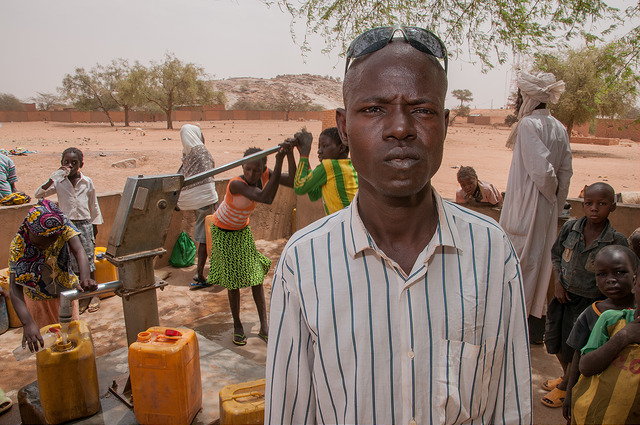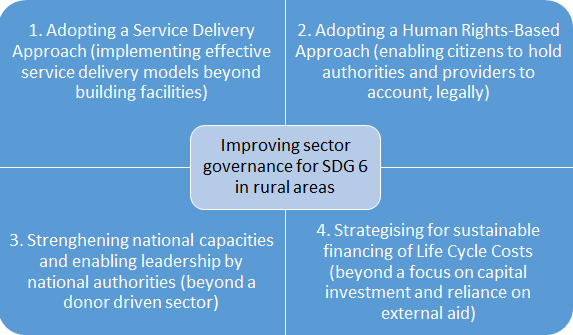The answer lies in four strategic changes in water sector governance.
Published on: 06/09/2016

Earlier this year, the ministers for Water from Burkina Faso and Niger presented their respective sector governance frameworks to meet SDG 6, the Sustainable Development Goal for water and sanitation. IRC Burkina Faso and COWI (a Danish consulting firm) provided technical support to the governments of both countries to design these frameworks. I believe the recommendations for water sector governance will be relevant for other similar countries.
Burkina Faso and Niger are both very poor, landlocked, Saheli countries prone to water scarcity. Neither country met the water-related Millennium Development Goals (MDGs) making achieving SDG 6 (universal access to water and sanitation) a big challenge for their respective governments. Fortunately, performance in urban areas has been satisfactory; so we are optimistic that learning from the success in urban areas will help in reaching SDG 6 in rural areas in both countries.
Lessons from the urban sector in both countries showed how important having the right service delivery models, water resources management models, institutional arrangements, capacity development and accountability mechanisms are for sector effectiveness. All these factors contribute to what we call water sector governance.
IRC and COWI's job as technical advisers to governments was to identify the changes needed to improve water sector governance in order to meet SDG 6 mainly in rural areas. Achieving universal access to water and sanitation in Burkina Faso and Niger requires four strategic changes in water sector governance:

These four areas of strategic focus have guided the formulation of national SDG 6 programmes:
From these experiences I would like to share some final thoughts: The strategic improvements identified for water governance in Burkina Faso and Niger are certainly applicable to other developing countries wishing to achieve SDG 6, namely: a service delivery approach for WASH; a human rights-based approach for both WASH and IWRM; capacity building and institutional strengthening;and, to make it all possible, sustainable financing. It sounds simple but unless there are policies and plans for these improvements, SDG 6 will not be achieved. A 15-year plan with ambitious goals is very different from planning year by year with whatever money is available. This also means aligning donor financing mechanisms with national priorities will be critical to make sure that programmes are realised.
Implementing these strategic changes in the sector will require high political commitment and high citizen pressure. Otherwise there is a real risk of continuing previous approaches and missing the SDG targets. Enabling regular learning and sharing platforms on water sector governance for achieving SDG 6 in poor countries will be essential. Therefore the African joint learning initiative in the WASH sector proposed by IRC and supported by AMCOW, UNICEF, WSSCC, pS-Eau and other key sector players is expected to be concretised soon, with a focus on water sector governance issues as one of its priorities.
What exactly does a learning initiative look like you might ask? What we have been discussing includes for instance continent-wide and multi-stakeholder coordinated action-research, workshops, seminars and other knowledge generating, stocktaking and sharing activities focusing on specific issues such as effective service delivery models for rural water or sanitation, sustainable financing solutions for the sector and successful civil society advocacy. It’s all about creating spaces for real dialogue and sometimes difficult discussions.
At IRC we have strong opinions and we value honest and frank discussion, so you won't be surprised to hear that not all the opinions on this site represent our official policy.